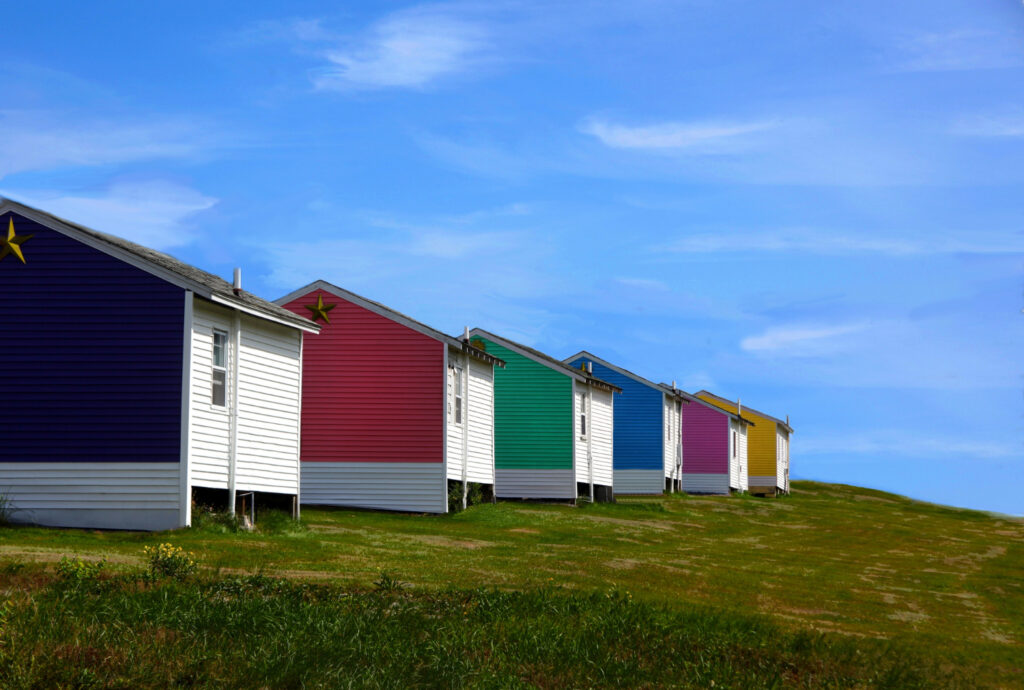CICPA Portacabin Supplier: Revolutionizing Modular Construction in Dubai

In the heart of Dubai’s dynamic skyline, where innovation meets the desert’s unyielding ambition, modular construction has emerged as a cornerstone of progress. As a leading CICPA portacabin supplier, Bait Almaha stands at the forefront of this transformation, delivering Certified International Container Portable Accommodation (CICPA) solutions that blend durability, versatility, and modern design. These prefabricated units are not just structures; they are the backbone of temporary and semi-permanent spaces that fuel Dubai’s relentless growth in construction, events, and industrial sectors. Dubai, with its visionary projects like Expo City and the expanding Palm Jumeirah developments, demands efficient, scalable building solutions. Traditional construction methods often fall short in the face of tight timelines and environmental challenges, but CICPA portacabins offer a seamless alternative. Engineered for the UAE’s harsh climate—scorching summers and occasional sandstorms—these cabins provide robust, weather-resistant shelters that can be deployed in days, not months. At Bait Almaha, our commitment as a CICPA portacabin supplier extends beyond supply. We offer end-to-end support, from conceptualization to on-site integration, ensuring every project aligns with Dubai’s stringent building codes and sustainability goals. Whether you’re outfitting a bustling construction site, creating pop-up event spaces, or establishing remote workforce accommodations, CICPA portacabins deliver unparalleled value. This comprehensive guide dives deep into the world of CICPA portacabins, exploring their design, applications, and advantages tailored to Dubai’s unique landscape. With over 10,000 words of in-depth insights, we’ll cover everything from manufacturing intricacies to eco-friendly innovations, helping you understand why Bait Almaha is the trusted partner for forward-thinking builders in the region. Let’s embark on this journey into modular excellence. Understanding CICPA Portacabins: The Gold Standard in Modular Housing CICPA portacabins represent a pinnacle in prefabricated technology, specifically designed to meet the rigorous demands of international standards while adapting to local needs in Dubai. The acronym stands for Certified International Container Portable Accommodation, a designation that underscores their compliance with global certifications like ISO 9001 for quality management and ISO 14001 for environmental practices. As a premier CICPA portacabin supplier, Bait Almaha ensures these units are not generic boxes but sophisticated, habitable environments ready for immediate use. At their core, CICPA portacabins are constructed from high-grade steel frames that provide structural integrity without compromising portability. The outer cladding typically features insulated sandwich panels—layers of galvanized steel sandwiching polyurethane foam or rock wool for superior thermal efficiency. This design is particularly vital in Dubai, where daytime temperatures can soar above 45°C, and nighttime drops demand insulation that maintains comfort without excessive energy use. The evolution of portacabins traces back to post-World War II Europe, where modular units housed displaced populations. In the UAE, their adoption surged during the 1970s oil boom, evolving into sophisticated solutions for the construction frenzy of the 2000s. Today, CICPA elevates this legacy with features like anti-corrosive coatings to combat coastal humidity and modular interlocking systems for easy expansion. Key components include: Flooring: Elevated, anti-slip vinyl or epoxy-coated options that resist moisture and facilitate easy cleaning. Roofing: Sloped, self-draining galvanized sheets with integrated ventilation to prevent condensation. Windows and Doors: Double-glazed, UV-resistant units with optional security grilles, ensuring natural light while enhancing safety. What sets CICPA apart is its focus on habitability. Unlike basic shipping container conversions, these portacabins incorporate ergonomic layouts, electrical wiring compliant with UAE’s DEWA standards, and plumbing ready for on-site hookup. For instance, a standard 20-foot CICPA unit can accommodate up to six workers with bunk beds, storage lockers, and a compact ablution area, all within a footprint of just 6×2.4 meters. In Dubai’s context, where land scarcity drives vertical and horizontal expansion, CICPA portacabins shine in their stackability. Units can be piled up to three stories high with proper anchoring, creating multi-level accommodations for large-scale projects like the Dubai Creek Harbour developments. This modularity reduces land usage by up to 70% compared to conventional site offices, aligning with the city’s smart city initiatives. Moreover, CICPA’s certification process involves third-party audits for fire resistance (up to 60 minutes per BS 476 standards) and seismic stability, crucial for UAE’s occasional tremors from regional fault lines. As a CICPA portacabin supplier, Bait Almaha conducts rigorous testing in our Dubai facility, simulating sand abrasion and extreme heat to guarantee performance. Delving deeper, the internal ecosystem of a CICPA portacabin includes climate control via split AC units optimized for low energy draw, LED lighting for 24/7 visibility, and optional solar-ready roofing for off-grid capabilities. These features make them ideal for remote desert sites, such as those in the Rub’ al Khali fringes where Dubai’s solar farms are expanding. The psychological benefits cannot be overlooked. Studies in modular living show that well-designed spaces reduce worker fatigue by 25%, boosting productivity on long-haul projects. In Dubai’s multicultural workforce, customizable interiors—think prayer spaces or communal kitchens—foster inclusivity, aligning with the emirate’s vision of harmonious urban living. As we explore further, it’s clear that CICPA portacabins are more than temporary fixes; they are strategic assets in Dubai’s built environment. Their adaptability extends to aesthetics, with facade options mimicking local architecture, like arched windows echoing Islamic motifs, blending modernity with cultural resonance. In summary, understanding CICPA portacabins means appreciating their role as versatile, certified powerhouses. Supplied exclusively through trusted channels like Bait Almaha, they empower Dubai’s dreamers to build faster, smarter, and greener. The Evolution of Portacabins in Dubai’s Construction Landscape Dubai’s construction sector, valued at over AED 200 billion annually, is a testament to human ingenuity against arid adversity. Portacabins entered this arena in the late 20th century, initially as rudimentary shelters for oil rig workers in the Gulf. By the 1990s, with the launch of mega-projects like the Burj Al Arab, they evolved into essential on-site hubs, and today, as a CICPA portacabin supplier, Bait Almaha is driving the next wave with advanced, integrated systems. The journey began with basic steel boxes imported from Europe, but Dubai’s visionaries demanded more. The 2005 property boom saw portacabins repurposed for luxury event spaces at the Dubai International Film Festival, highlighting their potential beyond utility. Fast-forward to the Expo 2020 legacy—now

